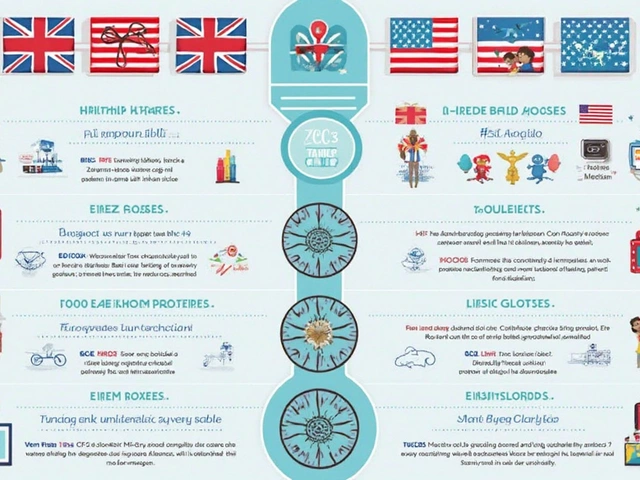IB (International Baccalaureate) – Everything You Need to Know
If you’re staring at the IB acronym and wondering what it really means for your studies, you’re in the right spot. The International Baccalaureate is a two‑year pre‑university program that mixes rigorous academics with a focus on critical thinking, community service, and personal growth. It’s a favorite for students who want a well‑rounded education and for universities that value that global perspective.
But the IB world can feel like a maze—lots of subjects, internal assessments, the Extended Essay, and the famous Theory of Knowledge (TOK) essay. On top of that, you need to know how your scores translate into college credit, especially if you’re eyeing schools in the UK, US, or elsewhere. That’s why we’ve pulled together the most practical info you’ll need, from credit acceptance to study hacks.
IB Credits and University Admission
One of the biggest questions IB students ask is, “Will my IB scores count for college credit?” The short answer: yes, but it depends on the university and the program. For example, Harvard looks at IB scores the same way it looks at AP scores—high scores can earn you advanced standing or let you skip introductory courses. Our article “Does Harvard Accept AP or IB Credits?” breaks down the exact score thresholds and how to list them on your application.
In the UK, many universities treat 6‑7 IB scores as equivalent to AAA‑BBB at A‑level. Some institutions even give you credit for individual higher‑level subjects, letting you start a degree a semester early. The key is to check each school’s admissions page and, if needed, contact the admissions office with your predicted grades.
If you’re comparing IB to AP, remember that IB’s internal assessments count for a good chunk of your final grade. That can be an advantage if you’re strong in coursework but prefer fewer high‑stakes exams. Our “A Levels vs SATs” piece also touches on how British exams stack up against US tests, giving you a broader picture when you’re weighing options.
IB Exam Prep and Study Strategies
Preparing for IB exams isn’t just about cramming facts; it’s about demonstrating analytical depth. Start by mapping out each subject’s assessment criteria—knowing exactly what examiners look for can save you hours of wasted revision. For higher‑level subjects, set mini‑goals: finish one internal assessment every two weeks, write a practice TOK essay, and draft your Extended Essay outline early.
Active recall works wonders for IB. Turn your notes into flashcards, test yourself on key concepts, and then teach the idea to a friend or even out loud to yourself. This forces you to organise thoughts clearly—a skill that shows up in the IB’s essay sections.
Don’t ignore the non‑academic side. The Creativity, Activity, Service (CAS) component counts toward your diploma, but it can also be a stress reliever. Choose projects that genuinely interest you—like volunteering at a local shelter or leading a school sustainability club—so you stay motivated while checking a box.
Finally, schedule regular breaks and keep a balanced routine. A well‑rested brain retains information better, and the IB’s workload can feel overwhelming if you burn out. Short, focused study blocks (25‑30 minutes) followed by a quick walk or snack keep energy high without sacrificing productivity.
Bottom line: the IB can open doors to top universities worldwide, but you need to treat it like a marathon, not a sprint. Stay organized, understand how your scores translate into credit, and use proven study hacks to boost performance. With the right plan, you’ll walk across the finish line with a diploma that truly stands out.






